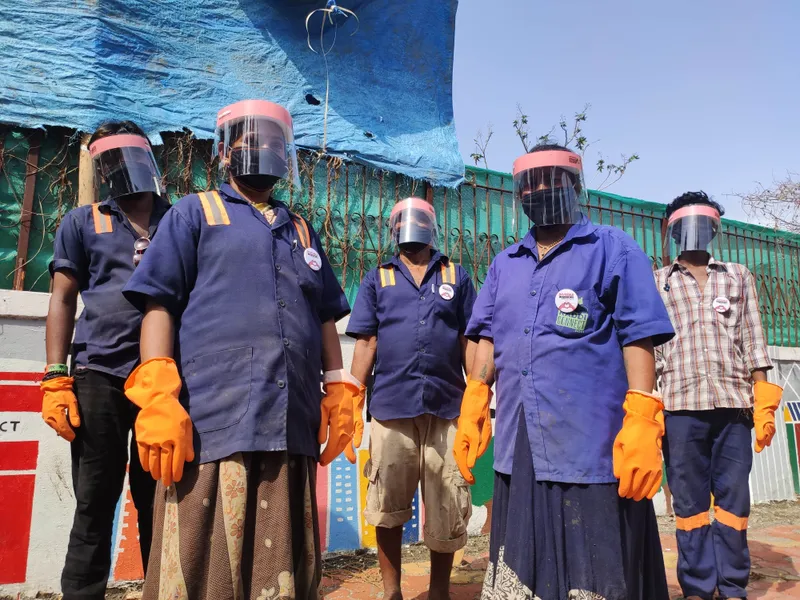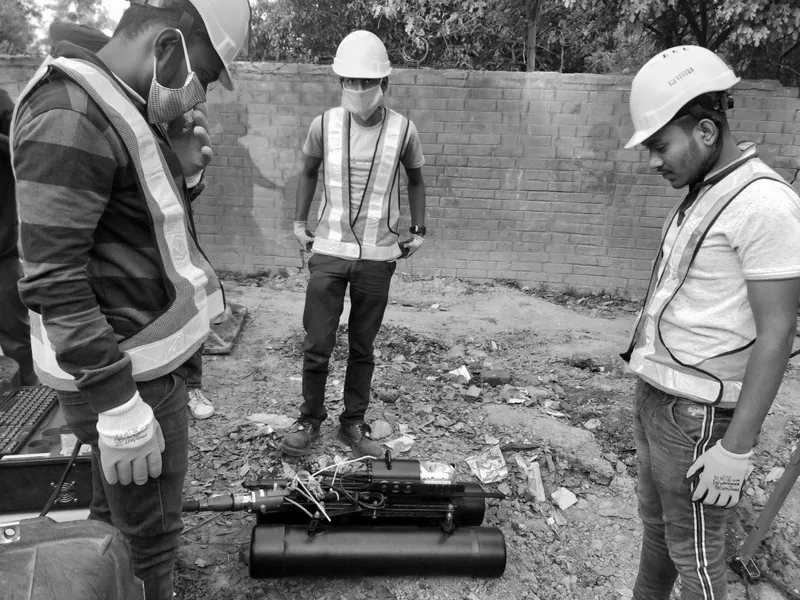Adapt and Innovate: Urban service delivery startups respond to the COVID-19 pandemic
Some enterprises working in water, energy and waste management sectors are seeking ways to safely sustain or scale existing operations, while others are modifying their solutions or innovating new ones to find a new purpose.
The unprecedented COVID-19 health crisis has exposed the frailties in India’s informal economy. During the lockdown, increased digital and internet penetration has boosted the role of startups in ensuring continued services.
For enterprises working in water, energy and waste management sectors, the lockdown has created a moment for introspection. Some enterprises are seeking ways to safely sustain or scale existing operations, while others are modifying their solutions or innovating new ones to find a new purpose during the lockdown.
Operations lockdown
For energy and water enterprises with sophisticated hardware that require in-person installations, the lockdown has limited or halted most operations. However, with enquiries coming in, there remains optimism that sales will pick up now, as the lockdown restrictions begin to relax.
On the other hand, when it comes to waste, the residential generation has increased. But restrictions on transportation and recycling mean that waste management enterprises are fast running out of storage space. More worrying is that poor consumer knowledge of waste management and segregation has possibly contaminated masks and gloves being disposed of with dry waste.
To ensure the safety of the waste-pickers they work with, waste management company, RaddiConnect, had to take a call to refuse contaminated waste and waste from quarantined homes.

RaddiConnect Employees in PPEs (Pic Courtesy: Rahul Nainani)
Ensuring continued productivity
With essential services like waste management required through the lockdown, the primary concern for companies like RaddiConnect and Hasiru Dala Innovations is protecting the waste-pickers they work with.
In addition to training them to recognise and reject contaminated waste, they provide them with rations and personal protective equipment (PPE). They are also conducting online webinars to train customers on how best to segregate and dispose of waste to guarantee the safety of waste collectors.
For other organisations, despite a slowdown in operations, given the sector expertise required, the care with which teams have been chosen, and the time that has been invested in training them, there is a reluctance to consider workforce or salary cuts. Instead, companies are conducting employee training focused on customer engagement, language training, and marketing expertise with an eye on post-lockdown sales.
Maintaining liquidity to stay afloat
Maintaining a roll of employees with limited resources and uncertainty around when operations might resume, makes liquidity a massive concern for enterprises. For those companies with subscription-based models, revenues from existing customers offer some temporary relief.
Beyond that, the founder of WEGot Utilities, an integrated water management company, Abilash Haridass, advises fellow entrepreneurs to “Cut all unnecessary costs, explore debt funding through banks or venture debt and give yourself as much time as possible to stay afloat by extending credit terms with suppliers.”
In fact, realising that some of their travel and office space is surplus to the requirement, WEGot is considering a 50 percent cut in travel expenses as well as reducing office rental costs by strengthening their work-from-home policy even after the lockdown ends.
Adapting to changing customer needs
Changing customer needs have necessitated business model adaptation from enterprises. With commercial establishments like IT parks and malls likely to see reduced footfall for months to come, enterprises that have thus far focused on institutional customers, and are beginning to look to the residential sector.
Rising water consumption and waste generation in the residential sector will require increasingly efficient water usage through smart water metering and new recycling technologies; and also, ensuring safe and efficient collection, segregation and disposal of waste.
The Solar Labs, on the other hand, are widening their market scope by advancing plans to take their rooftop solar software-as-a-service (SaaS) product to international markets. They are using the lockdown to focus on improving, customizing, and developing additional features for these markets, while also preparing their sales team to pitch to international customers.
Using innovation to help tackle COVID-19

Fluid Robotics employees with robot during deployment. (Pic Courtesy: Asim Bhalerao)
Finally, a few companies have adapted their products and skills to meet new needs during the lockdown. Fluid Robotics is working on developing a solution using a combination of robotics and a wastewater-based epidemiology (WBE) approach to boost municipalities’ abilities to locate and contain coronavirus outbreaks.
Founder of Fluid Robotics, Asim Bhalerao says, “Building on recent success by American and European scientists in detecting COVID-19 in wastewater, our goal is to deploy these methodologies in Indian cities. Our Fluid-bots have been designed to collect wastewater samples, without the risk of human exposure, and to map all buildings and communities connected to each sample.”
They have begun piloting their solutions in Mumbai and expect to have initial results in the coming weeks.
Meanwhile, MinionLabs has been applying their significant product development and design skills towards finding a solution to sterilise delivered parcels. With new research coming out about the success of UV sterilisation, they have created a compact prototype case where delivery boxes can be kept to sterilise them in the time it takes a person to wash hands.
With support from investors, they are also working on a pilot in partnership with a food delivery company, while also looking to get the prototype tested and certified.
Ecosystem support needed
While entrepreneurs are taking necessary steps to ensure they continue serving their communities, whether customers or employees, they require support from citizens, investors, and the government.
As stable and profitable businesses offering innovative and impactive solutions, enterprises that can clearly differentiate themselves during the lockdown will need investment to scale these solutions.
Aside from their ability to attract investment, government support is crucial during the immediate response to the crisis. The currently available schemes remain difficult to access or inadequate in their offerings.
Finally, citizens need to assess their behaviour as consumers—not just in terms of responsible waste management, but also in the businesses they patronise. Local businesses that offer impactful solutions and support communities are making a case against the sustainability of purely price-led consumer decision-making.
Edited by Kanishk Singh
(Disclaimer: The views and opinions expressed in this article are those of the author and do not necessarily reflect the views of YourStory.)







